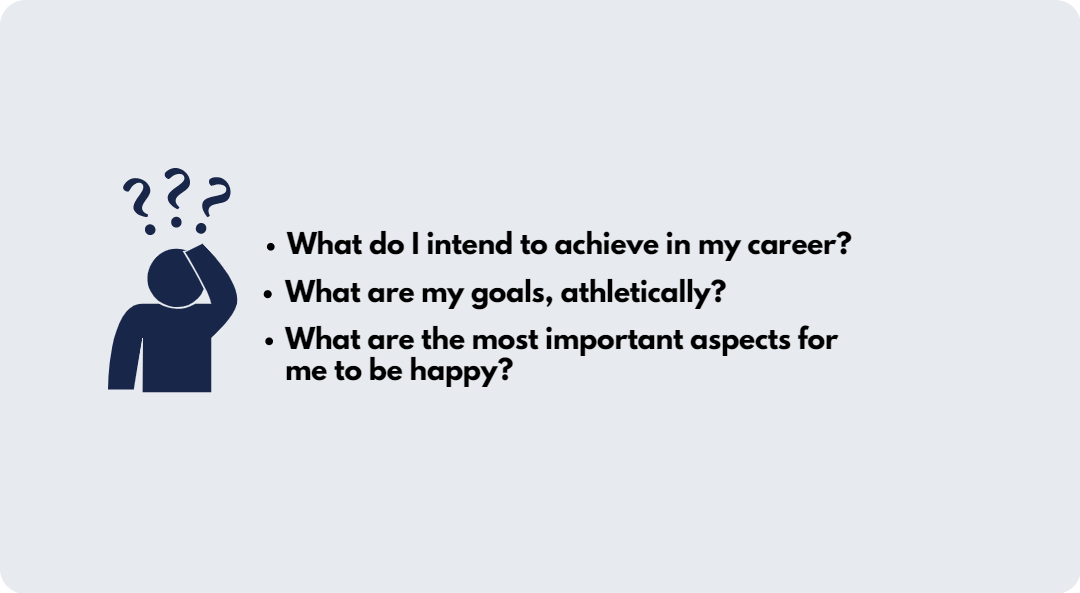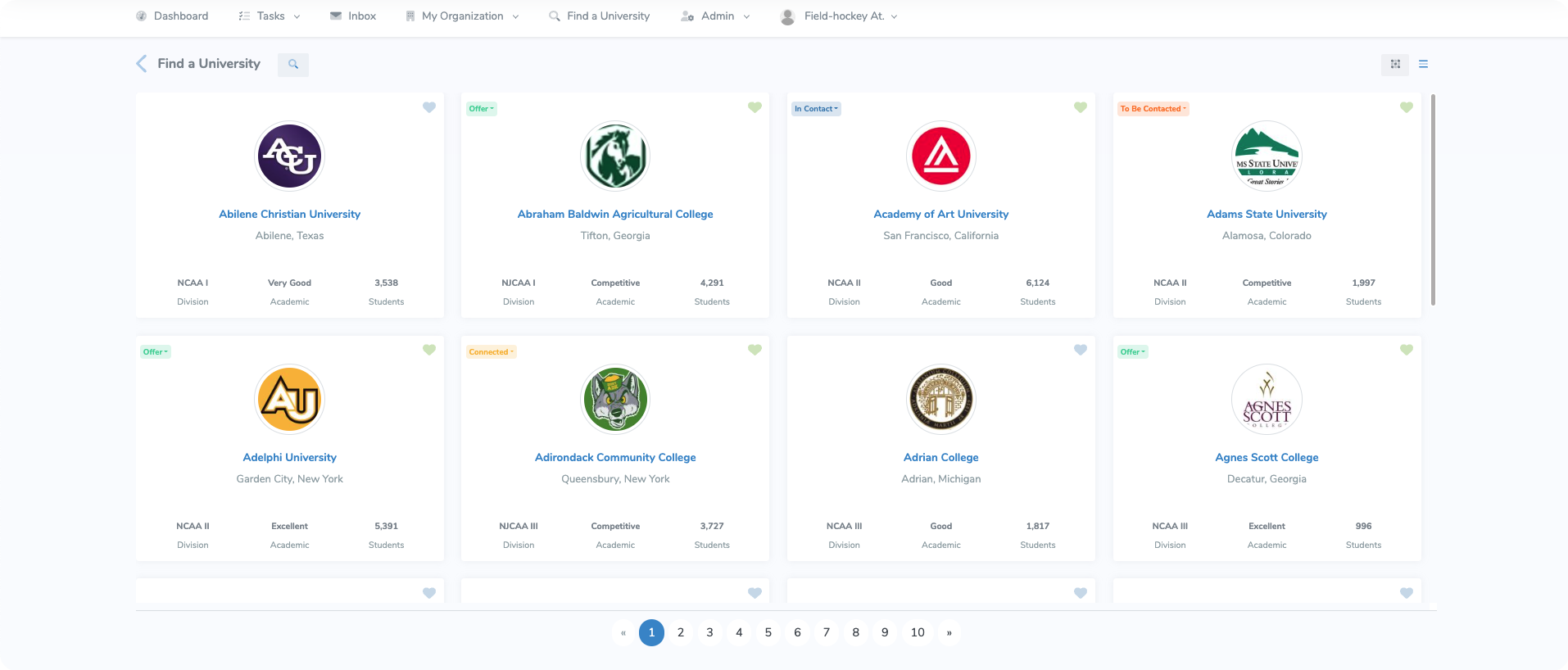Is The Offer Worth the Money?

Unless you are among the absolute blue-chip elite athletes (obviously looking at full-ride options), the question will be around for the years to come:
Is The Offer Worth the Money?
If you were not to be a student athlete, the same goes for everyone else:
Is College Worth the Money?
To be a little more precise, by asking above question(s), we actually mean: is a particular scholarship offer of a coach (read: remaining out-of-pocket expense, budget, or remaining price tag) or an offer by a university worth the money?
With costs of schools and scholarship budgets fluctuating wildly, you could end up looking at price tags of completely different extremes.
How should one then compare the option of, say, going to a junior college (JUCO) for less than 5k USD a year and living at home to the option of going to one of the most expensive and respected liberal arts school in an expensive corner of the country (NCAA D3)?
You can start looking at this question from different angles:
- What do I intend to achieve in my career?
- What are my goals, athletically?
- What are the most important aspects for me to be happy, generally speaking?
Now, let's go through each and every single one of them and see how the decision-making process might unfold:

What Do I Intend To Achieve In My Career?
- How am I doing in high school?
- Why do I actually want to go to college in the first place?
- Do I need a degree for my future work plans?
If you have been top of class, chances are you have pretty high aspirations and want to make sure your college education reflects just that.
There are competing college rankings that publish schools' rankings in various categories, such as best "National Liberal Arts Colleges" or "Best Regional Universities South Rankings". It's not always the easiest to understand the difference between rankings and how a regional Top 50 ranking compares to a national Top 100 ranking, but we try to make things a bit easier by offering an indicative "Academic Level" on our recruiting platform, which can be complemented by reviewing different college rankings in a next step.

If you are crystal clear about the field of study you would like to focus on, your college research would get significantly easier.
Specific degree, department, professor even, or a school, which has earned a particularly strong reputation in the past.
Quite likely, you will be receiving a higher return on your investment, as graduating from a stronger college will give you access to better-paid employment opportunities.
If your main goal is finding a school just to get a degree, you may want to pick the easiest route, which often happens to be less expensive as well.
What Are My Goals, Athletically?
This is were things start to become more complex.
The athletic level of a team can fluctuate wildly. A coaching change, a scholarship budget cut (remember: COVID), a move to another conference. There are many factors that define the level of an athletic team and some of them you can really only find out about by doing your research and getting answers from the coaches; that is, if you are on the level for them to even have a conversation with you.
At the outset, we mentioned that this article is predominantly for prospects who are not among the blue-chip athletes; = those who'll be receiving full scholarship offers no matter what. But the reality is that a diminishingly small number of recruits has the privilege of getting the full cost of attendance paid for by school.
Equivalency Sports
In an equivalency sport, coaches can split up their scholarship budget as they deem appropriate. The strongest athletes on the roster may still be getting a full or close to that, but coaches typically attempt to work out scholarship offers, which match recruits' financial abilities: their out-of-pocket budget(s).
If you have extremely high athletic aspirations, you may want to get recruited by a school in a top-conference, surrounding yourself with like-minded strong peers - stronger peers - which makes up for a competitive environment for you to grow and develop. But that might also mean that the coaches offer you less of the scholarship pie as another coach would, who'd recruit you as the absolute star freshman.
Is it worth it? That really depends and is something you'd need to consider carefully.
In case you are interested in learning more about the difference between equivalency sports and headcount sports, check out this blog article: The Truth about Athletic Scholarships at College
What Are The Most Important Aspects For Me To Be Happy, Generally Speaking?
Let's consider 2 different scenarios.
Scenario 1
You have grown up in a small community, slightly anxious about going to a big state school, where you may end up being one of many students.
While it seems exciting to experience a much larger student body for the first time, you kind of feel that you need something similar to what you are used to in order to flourish and do well.
Going to a smaller (private?) 4-year school is often more expensive than attending a public school or community college.
Scenario 2
Have you grown up in beautiful, but rural Nebraska, or perhaps an alpine region in a far-away country?
Perhaps you really care about living in a huge city for the very first time and no matter what, this is one of the key elements of your future decision.
Going to school in a big city is a more expensive undertaking, with universities' cost of attendance oftentimes higher, due to the cost of living (dorm rooms, food, salaries, etc.)
For someone who really doesn't care about the size of school or where the school is located, a higher price tag might not be worth it, but for others it could be a deal-breaker, as they would end up wanting to transfer some months / years down the road.
In the long-run, analyzing and understanding what it is that makes you feel comfortable, saves you tons of troubles and perhaps even money ...
Recruits who will be talking to coaches about committing to their programs will be facing various options and offers.
Some concretely on paper, some only in a conversation, sometimes the question "What's your budget" has been asked straight out by the coach and sometimes, the coach simply makes an offer without caring to ask.
For partial scholarship candidates (again, not obvious full-ride contenders), the various offers will never quite look the same.
Imagine a mix of offers, such as the following:
- School A (NJCAA D-1)
Small town, out-of-state, non-residential campus.
Offer covers around 90% of total cost of attendance, leaving you with 1,500 USD to pay out of pocket. - School B (NCAA D-2)
Rural area, small Christian school, in-state, more than 50% of student body are athletes.
Offer is combined academic and athletic aid, leaving you with 10,000 USD to pay out of pocket. - School C (NCAA D-1)
Large city, in-state, academically top-notch.
Coach is interested to speak to you as a potential "walk-on", but makes clear that he will not be making an offer. The school's (!) offer ends up being solely academic aid and the remaining price tag in Year 1 amounts to 20,000 USD.
Depending on background and goals, one may be jumping at Option 1 (School A, Junior College), whereas another person may be dismissing this option entirely and focus on Schools B and C.
For someone who really has high athletic and academic goals, as well as the financial flexibility, School C might be a no-brainer, believing in ones' skills to get a foot in the door with the team and then potentially prove oneself for sophomore, junior and senior year; perhaps even on some sort of small athletic scholarship award after some time.
Let's put this all together:
Whether a particular offer is worth it or not does not always come with an obvious and easy answer.
We recommend you sit down with your family and close ones, consult your recruiter (in case you work with some sort of advisor) and look at the various dimensions of a college option.
Ideally, you don't just start doing that once you have concrete offers coming in, but at the outset of your recruiting process in sophomore / junior year in high school. This will save you tons of time and allow you to pinpoint pretty early on, what kind of schools you'd like to focus on going forward.
In case you are interested in finding out more about the big question about budget or any other topic within college recruiting, check out our collection of articles on our Smarthlete Blog.
Ready to start your recruiting process, start researching schools and contacting coaches? Sign up with a free recruiting profile on our website right here.